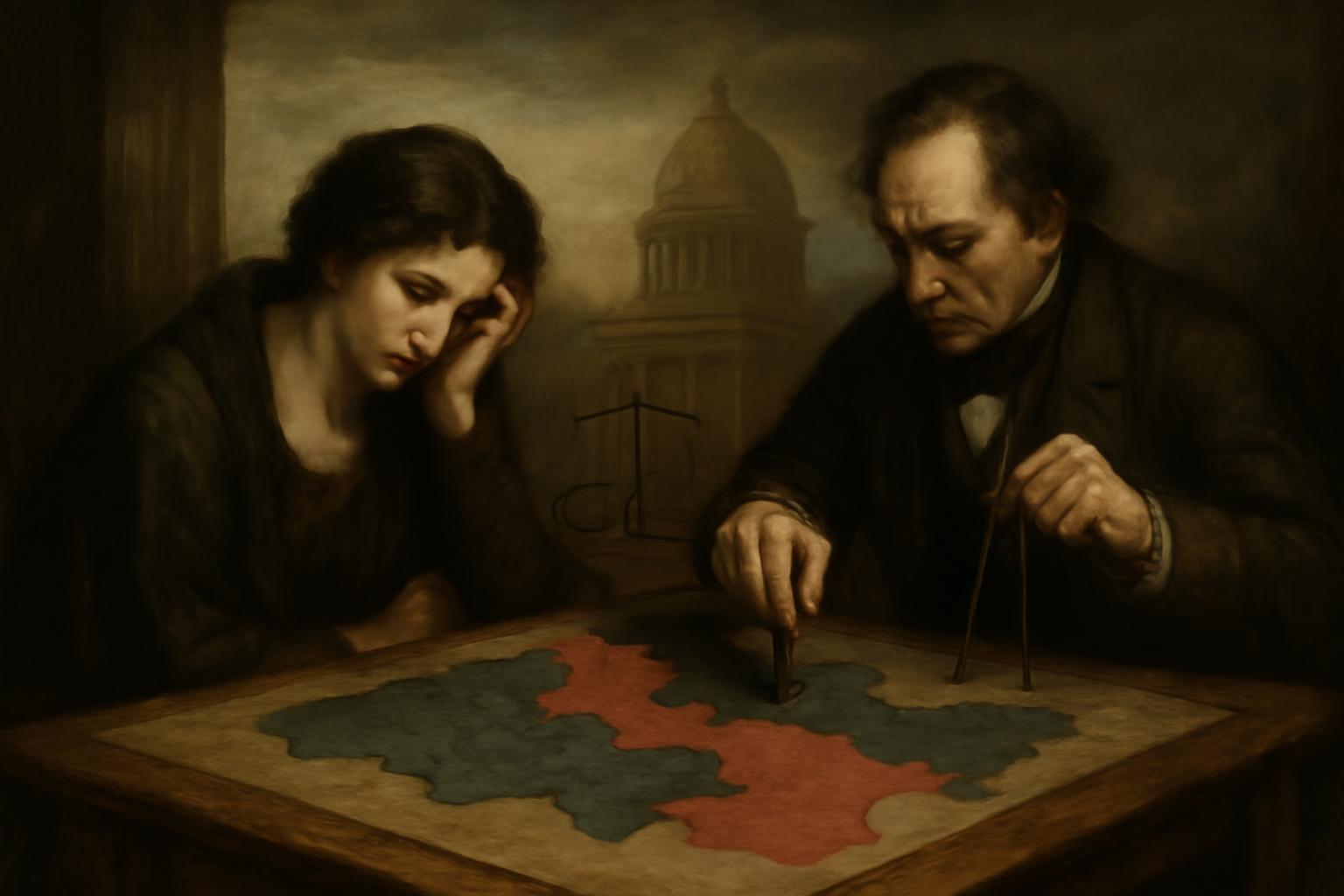The theatre of democracy, if such a thing still holds a trace of music, now staggers in its own long shadow, as if the map itself has learned to lie. Lines are drawn not to chart the pulse of the people, but to weaponize the very idea of representation, to turn the republic into a craft of loyalties slid across parchment. A modern tragedy unfolds in the margins where cartographers pretend to hear the voice of the polis and instead hear only the whisper of advantage. Gerrymandering—that term that sounds almost like a chorus of ancient serve-and-leap—has become the quiet author of our political fables, a tactic that takes the census and remakes it into appetite.
In one corner, the red-ink heralds a push in Texas to redraw its congressional map so that the national House balance tilts in their favor. A calculation in which five seats, or the semblance thereof, would bend toward a preferred fate. In the other corner, California’s air is thick with countervailing reform, a countercurrent that aims to set the lines again by a principle larger than expediency. Governor Newsom speaks of democracy defended district by district, a phrase that would sound noble if it did not come wrapped in the bear flag—symbol and emblem turned into talisman in a theater of divisive numbers. The bear, mighty in myth, becomes a mascot for a modern arithmetic, as if courage could be measured by precincts and margins instead of by conviction.
Meanwhile, the chamber of Texas becomes a stage emptied of its actors, lawmakers walking out to deny quorum, a ritual denial that resembles a chorus retreating to mute its own line of destiny. The aim is not a debate of ideas so much as a chess game with human lives—an image that makes the heart narrow and the mind ache. Across the map, the national frame holds a fragile equilibrium: a House and a Senate under Republican sway by slender margins, a cautionary sigh of power that promises more, not less, contest in the 2026 crucible when all 435 House seats and roughly a third of the Senate are up for reelection. Texas sits with 25 Republicans and 12 Democrats, one seat vacant, California with 9 Republicans and 43 Democrats, an order of magnitude more lopsided in one direction yet balanced by the stubborn insistence of another. Illinois, too, lifts its own hand, though California and Illinois guard the lines by stricter statutes, as if the letters on the page could resist the appetite of political appetite. Gerrymander, that word that drips with irony, ties itself to population data drawn from the decennial census, a data‑driven fate that both sides wield as a blade.
What remains when the map becomes more faithful to power than to people? The ancient poets would call it hubris—the desire to redraw the world so that it finally speaks one language: the language of advantage. Nietzsche would murmur about the will to power masquerading as virtue, about the herd replacing nobility with numbers, about the abyss that opens when meaning is sacrificed to the order of the chart. The Greek chorus—once a reminder of communal fate—now serves as a counting room, its harmonies drowned by the clatter of gerrymandering machines. We witness not merely a political maneuver but a cultural senescence: a civilization that measures citizens by districts rather than by duties, that treats the vote as an algorithmic artifact rather than a living pledge.
And yet, if democracy is the slow, stubborn work of asking every generation to choose its own fate, then the bear’s gaze still holds a flicker—though dimmed—of courage, of the belief that lines can be redrawn with restraint and memory rather than appetite. We are called to endure the tragedy without surrender: to resist the seduction of maps that promise certainty while delivering division, to recall that the most sacred architecture of the republic is not the grid on a page but the stubborn, patient work of shared deliberation. Perhaps, in the wake of these lines, we may learn to reweave a more honest home for freedom—where the map serves the people, not the other way around—before the music of legitimate discourse recedes entirely into the silence that follows a flawed act of power.
